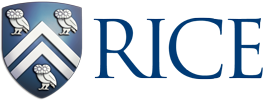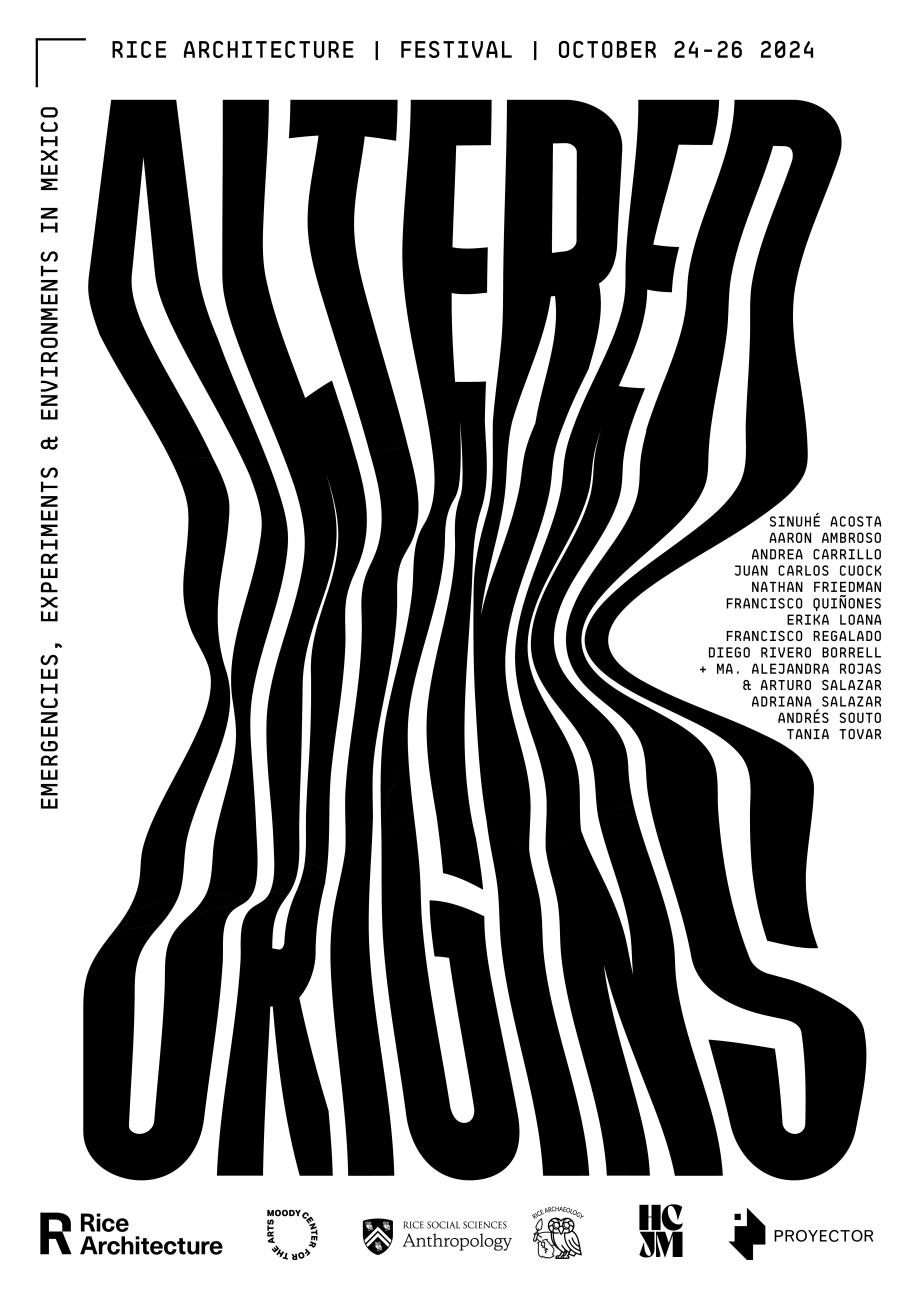All activities of Altered Origins are free. Registration is required for workshops. To register, click here.
MORNING WORKSHOPS
10:30 am–12:00 pm
Digital Clay | Session 2
Sinuhé Acosta, Random Studio
William T. Cannady Hall, Fabrication Workshop
This two-day workshop will explore the creative possibilities of 3D-printed clay. Participants will learn how to manipulate the material’s unique properties and turn defects and imperfections into intentional design elements. The Experimental 3D Modeling Workshop is a theoretical-practical course covering techniques and methodologies developed in our experimental workshop for the creation of ceramic pieces with modified 3D printers. The primary 3D modeling software will be Blender, and Cura will be used for the slicing of final prints.
Collective Digitization: Collaborative 3D Scanning | Session 2
Francisco Regalado, Laboratorio de Arte, Arquitectura y Arqueología
Sewall Hall, Archaeology Lab
This workshop explores collaborative methods for 3D scanning of artifacts, to democratize the information embedded in them. Although every country has its own set of laws and ethics around cultural heritage, the digital world may hold the key to democratizing access to it anywhere and everywhere. In response to this intricate landscape, this two-day workshop is dedicated to exploring the intersection of cultural heritage and digital innovation. Participants will learn to use photogrammetry, a powerful tool that can transform private cultural collections into accessible public resources. Through a series of collaborative sessions, attendees will dive into the practicalities and possibilities of digitization. Drawing from diverse case studies, participants will explore methodologies for capturing, processing, and preserving artifacts in the digital realm.
AFTERNOON WORKSHOPS
1:00 pm–4:00 pm
Utility Tour
Francisco Quiñones and Nathan Friedman, Departamento del Distrito
MD Anderson Hall, Farish Gallery
The activation takes the form of a multisite “utility tour,” exploring questions around energy and infrastructure on the campus of Rice University. Research on infrastructural systems, resource management, and the energy cycles embedded in architectural production are ongoing themes investigated by Departamento del Distrito. Utility Tour takes Rice University as a case study and asks participants to reflect on the forms, methods, and technologies surrounding campus utility management through firsthand experience. Focused on communities, the workshop will explore alternative, small-scale strategies for renewable energy production as a means to increase public access to essential resources.
Petrographic Landscapes
Erika Loana, Materia Prima
Moody Center for the Arts, Classroom 204/205
Just as petrography uses detailed microscopic analysis to describe and classify rocks, this workshop will study the implications of architecture on landscapes and territories through the eyes of Atlas Materia Prima. By following the guidelines of petrography, participants will explore the more than 38 extraction sites that have been visited as part of this project in the last four years, using collage as a tool to create unique graphic worlds.
PRACTICE CONVERSATION
Mediums and Environments
5:00 pm–7:00 pm
Francisco Quiñones and Nathan Friedman, Departamento del Distrito
Adriana Salazar, Independent Artist
Erika Loana, Materia Prima
Response: Aaron Ambroso, Houston Climate Justice Museum
Moody Center for the Arts, Classroom 204/205
The panel explores the effects—physical and abstract—that human developments have on the natural environment. From resource extraction to new infrastructures, these practices implicate architecture’s role in shaping landscapes. By reinterpreting established ways of understanding territories and resources, they seek to elicit new insights; by studying the systems that sustain human activity and documenting territorial transformation and physical alteration, they explore ways of fostering reconciliation with the environment, considering both human and other-than-human perspectives.
ABOUT THE EVENT
To think about origins is to think about sources, materials, and places of provenance: natural or artificial, physical or virtual. The question of origins, however, is bound to the question of their alteration. Only when something changes, are we left asking where it came from. Transformations, in all scales and temporalities, have always been present in architecture: from the slow degradation of ancient ruins to the immediate repetitions of digital images. Architecture and its objects are not only inevitably bound to face alterations, but architectural practices have also incorporated them at the core of their methodologies, mixing old traditional processes and new technological tools in various gradients and conditions. Mass and digital production and dissemination methods are making for fast-changing conditions in architecture, taking a particular interest in replicating and reproducing objects, processes, and experiences. As technical and technological tools evolve, so do the forces that objects undergo, changing media, shape, location, temporality, and meaning.
Altered Origins invites contemporary spatial practitioners in Mexico who work at the intersection of architecture and the arts to share their insights into the physical and conceptual transformations, media, and disciplinary intersections shaping contemporary architectural discourse and practice through an open exchange of methodologies and experiments.
The three-day festival, featuring a program of open workshops, conversations, and live performances, will be held from 24 to 26 October at multiple venues in and around Rice University, including the Rice School of Architecture, the Archaeology Lab of the Rice University Anthropology Department, the Moody Center for the Arts, and the Houston Climate Justice Museum.
PARTICIPANTS:
Sinuhé Acosta, Random Studio
Aaron Ambroso, Houston Climate Justice Museum
Andrea Carrillo Iglesias, Independent Artist
Nathan Friedman and Francisco Quiñones, Departamento del Distrito
Erika Loana, Materia Prima
Francisco Regalado, Laboratorio de Arte, Arquitectura y Arqueología
Diego Rivero Borrell, TANAT + María Alejandra Rojas and Arturo Salazar
Adriana Salazar, Independent Artist
Andrés Souto, mUcHo estudio/taller
Tania Tovar and Juan Carlos Cuock, Proyector


